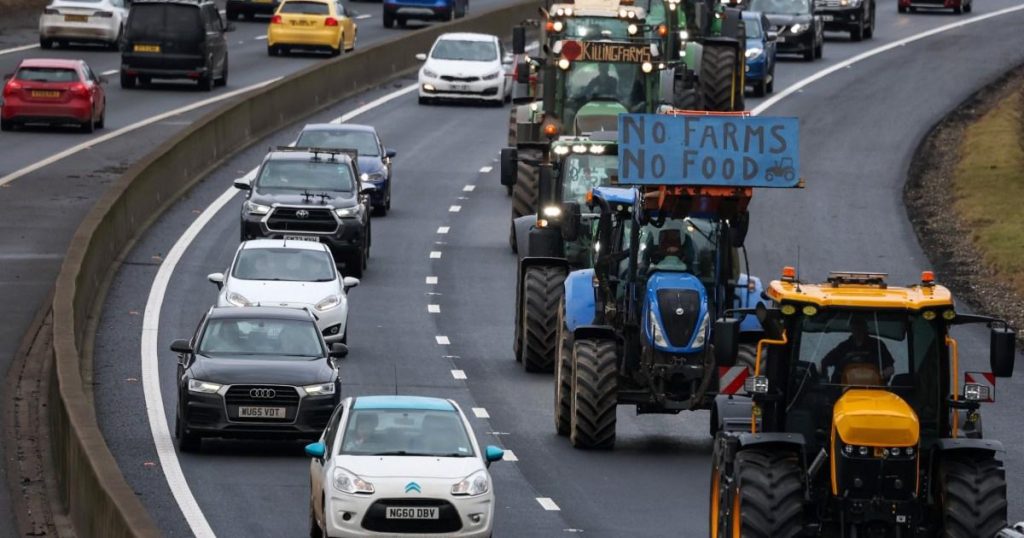The UK’s farming community is facing a potential crisis as proposed changes to inheritance tax and rising business costs threaten the viability of hundreds of farm shops. The Farm Retail Association (FRA) estimates that up to 700 farm shops could be forced to close over the next decade, resulting in significant job losses and impacting rural economies. These businesses are caught in a double bind, facing increased operational costs due to rising National Insurance contributions for employers while simultaneously grappling with the looming prospect of substantial inheritance tax bills. This combination of pressures is creating a perfect storm for many farm shop owners, who are already operating on tight margins.
At the heart of the issue is the government’s plan to end certain inheritance tax reliefs for farms worth over £1 million starting in 2026. This change, coupled with the existing cap on agricultural and business property relief, means that many farming families will be forced to sell off significant portions of their assets to cover the resulting tax burden. For generations, these tax reliefs have provided crucial support for family-run farms, allowing them to pass on their businesses to the next generation without incurring crippling tax liabilities. The removal of these reliefs effectively undermines the long-term viability of many family farms and associated businesses like farm shops.
Farm shops, often a key diversification strategy for farms seeking to improve profitability, are now particularly vulnerable. They not only provide an additional income stream but also create local jobs and offer consumers access to fresh, locally-sourced produce. The impending inheritance tax changes, combined with rising business costs, threaten to dismantle this vital part of the rural economy. Owners are expressing concerns about the cumulative effect of these financial pressures, with many fearing they will be unable to absorb the increased costs and maintain their businesses.
The government, however, maintains that its commitment to farmers remains “steadfast.” Officials point to the £5 billion allocated to the farming budget over two years, which includes funding for sustainable food production and the development of a 25-year roadmap for the sector. Furthermore, they argue that the reforms to inheritance tax reliefs are “fair and balanced,” resulting in a reduced effective inheritance tax rate of 20% for affected estates, with payments spread interest-free over 10 years. They also emphasize that these changes will only impact around 500 estates in the coming year.
Despite these reassurances, farmers remain deeply skeptical of the government’s claims. They argue that the proposed changes fail to address the fundamental challenges facing the agricultural sector and threaten the long-term viability of family farms. The farming community has staged several protests in recent months, demonstrating their discontent with the government’s policies. Thousands of farmers and their tractors descended upon London to voice their opposition to the inheritance tax changes, highlighting the growing sense of unease and frustration within the industry. These demonstrations underscore the deep divide between the government’s perspective and the lived realities of farmers struggling to maintain their businesses.
The clash between the government’s fiscal policies and the concerns of the farming community underscores the complex challenges facing the agricultural sector. Balancing the need for fiscal responsibility with the imperative to support a vital industry remains a difficult task. While the government insists its reforms are necessary and fair, farmers argue they are being unfairly penalized and that the long-term consequences for the industry could be devastating. The future of many farm shops, and indeed the wider agricultural landscape, hangs in the balance as this debate continues.











